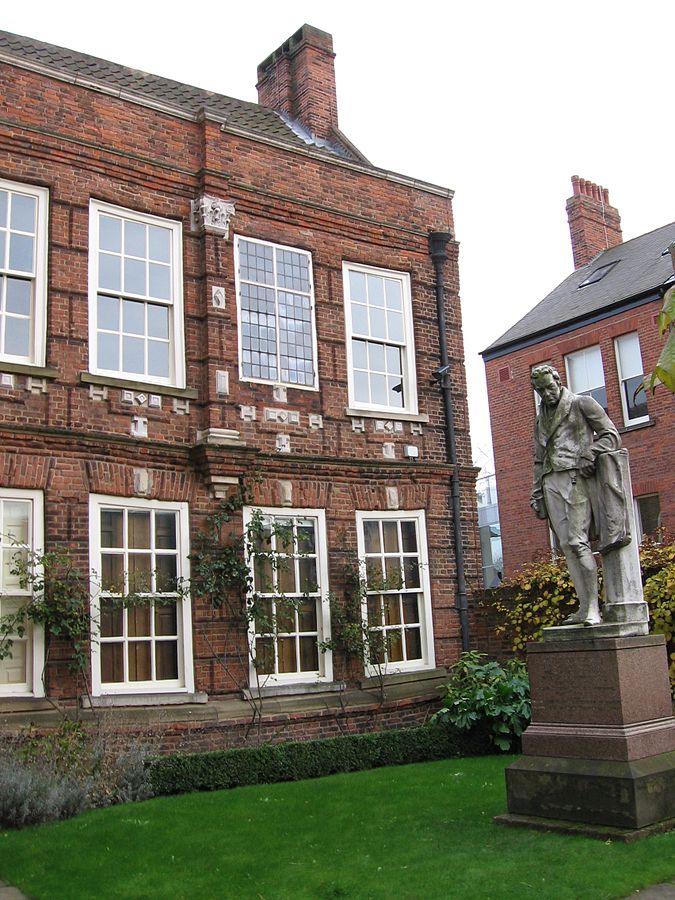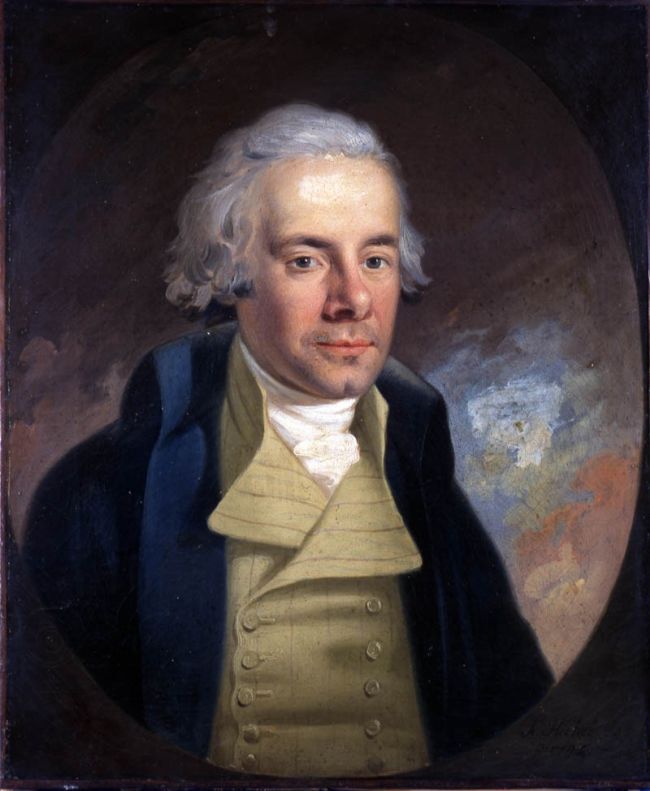
Introduction
William Wilberforce was a politician and humanitarian campaigner whose lifetime’s work helped to abolish the slave trade in the UK. It was his dedication to the cause and determination to overcome the many obstacles that lay before him that makes him a great historical Yorkshireman.
Early Life, Education and Early Political Career
William Wilberforce was born in 1759, on the High Street in the old town area of Hull. He was educated at the city’s grammar school and then moved onto Pocklington School.
Wilberforce progressed to university at St John’s College, Cambridge where he met the future Prime Minister, William Pitt and the two became great friends. They would sit together in the public gallery at the House of Commons and watch the lively debates below. Like a lot of wealthy young men, he also drank and gambled his recently received family inheritance money. On graduation from University, Wiberforce decided to use some of this money to better effect and stand as an MP for Parliament in 1780. He won a seat in his native Kingston-upon Hull as an independent candidate. This meant that he was not tied to a particular party, neither Tory nor Whig and so it gave him the freedom to vote with his conscience, rather than being forced by the party whip. The downside to this was that should he propose any new legislation, he would have to find support from the other parties in order for it to be passed.
In 1784 Wilberforce went on a tour of Europe, which would ultimately change his life. Gone were the days of avarice which he enjoyed in his student days. Instead, he dedicated himself to the Christan faith and to do what was right for the good of the country. He would use his position initially to try and pass laws on social reform, factory conditions and public health. Later his defining moment as a politician came when he campaigned and helped to pass laws which banned the UK’s participation in the international slave trade.
The First Vote in Parliament on the abolition of slavery – 1791
At the time Great Britain was heavily involved with the trading of slaves from Africa and The Carribbean. Although there were never any plantations on these shores, the UK more than played her part in keeping the trade thriving. The UK grew rich from the business by sending sales supplies to Africa, such as copper, cloth, guns and ammunition. These would then be traded for African slaves, who were shipped over to the Caribbean and America. The money raised through selling them to plantation owners would be used to buy imports such as sugar, cotton and rum which were then brought back to Britain and sold to the paying public.
In 1787, Wilberforce met the abolitionist, Thomas Clarkson, and joined his movement, The Society for the Abolition of the Slave Trade.” Clarkson and Wilberforce would regularly meet to discuss issues surrounding slavery, including the terrible conditions and lack of human rights they endured. They also tried to raise awareness amongst British society about the evils of the trade. In the same year his old friend, William Pitt, then Prime Minister encouraged Wilberforce to raise a motion in Parliament to abolish slavery.
Speaking passionately on the issue in the House of Commons he said:
“I mean not to accuse anyone, but to take the shame upon myself, in common indeed, with the whole parliament of Great Britain for having suffered this horrible trade to be carried on under their authority.”
The motion was defeated by 163 votes to 88. The big problem was that too many MPs and the establishment at the time had a stake in the trading of slaves. Great wealth was being created for the country and the people in the corridors of power were not going to get rid of it easily.
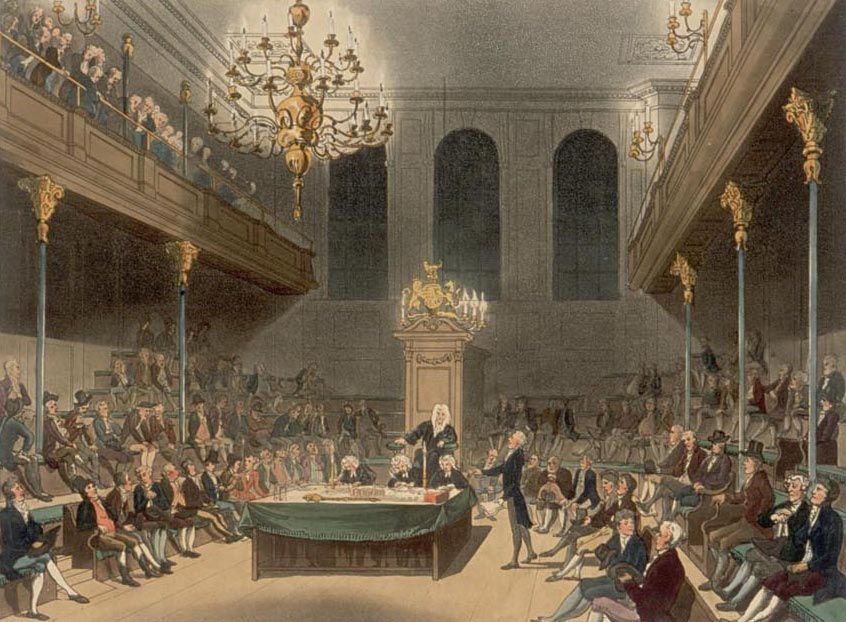
Limited Progress in the 1790s
Undeterred Wilberforce tried again to instigate another abolishment law in 1792. On this occasion it was decided by the Home secretary, Henry Dundas, that abolition should be a “gradual process over several years.” Although this may have seemed like progress, the idea was seen by many as delaying the decision forever, or in modern political terms, ‘kicking the can down the road,’ while seeking to appease the reformers in the process.
Then, in 1793 war was declared on France when King Louis XVI was murdered in the aftermath of the French Revolution. Any suggestion of disrupting the slave trade, which provided a large source of income during times of conflict were talked down and dismissed as rebellious talk. The government were also concentrated on the war, in which they were part of a wider coalition of Western European countries and so the abolition of slavery was shelved. Even the previously vocal ‘Society for the Abolition of the Slave Trade,’ stopped meeting. Wilberforce continued in Parliament, attempting to introduce new anti-slavery bills, but with little success. He was not helped in 1794 when France had temporarily abolished slavery after a rebellion against their rule resulted in the formation of Haiti. Therefore any moves by the British to follow suit was seen as being pro-French.
The 1807 Slave Trade Act
In 1802 Napoleon’s France re-introduced slavery into their African colonies, meaning that the abolishment movement was no longer seen as pro French. The anti slavery society began meeting again, complete with new members. A new bill was introduced in the same year, which was passed in the Commons, but ran out of time in the session to be voted on by the House of Lords. In a second Commons vote in 1805 the bill was defeated again, where even Wilberforce’s old friend, William Pitt now the Prime Minister voted against it. A new tactic was needed.
Indeed a new bill was proposed, this time introducing a new law which meant that British Citizens could not be involved with aiding the French slave trade. This made sense to many MPs as they did not want to help a nation of which they were at war with and their ever more dangerous leader, Napoleon Bonaparte.
The abolishment movement gained a further boost in 1806 when William Pitt died and Lord Grenville became the new Prime Minister. He was in favour of abolishing slavery and the issue had been one of the biggest reasons why he had been voted into power. Indeed, the 1806 General Election put the abolishment of slavery as a central political issue in the campaigning. New MPs, some of who were members of the military and had seen the horrors of slavery for themselves during their service in the war with France, suddenly turned in favour of abolishing the trade. Furthermore the 1806 Act of Union allowed 100 pro-abolition Irish MPs into the House of Commons too, which swelled the numbers even further. Together with Wilberforce, Lord Grenville promised to set the wheels in motion in order for an 1807 bill to be launched and passed first in the House of Lords and then the Commons, which was the opposite way round to the usual way of passing laws. The idea worked and the 1807 The Slave Trade Act received Royal assent in March of that year, having sailed through the House of Commons by 283 to 16. A watching Wilberforce apparently cried tears of joy.
The 1807 act did not abolish slavery altogether, but made it illegal for British ships to carry slaves on them, meaning that the trade stopped altogether in the colonies. The act did not free people who were already slaves but at least prevented their flow across the Atlantic and the acquisition of new ones.
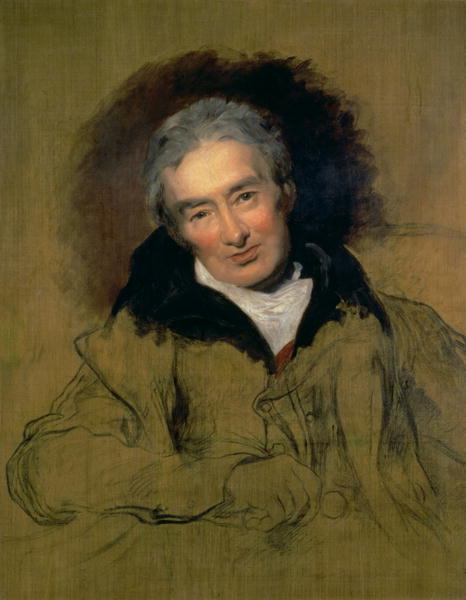
Other Achievements
Although abolishing slavery is what William Wilberforce is most famous for, he also had a long political career which saw him involved in the day-to day passing of legislation in the House of Commons. Wilberforce campaigned for the abolition of ‘rotten boroughs,’ which were constituencies which had little or no people in them for MPs to serve. He also helped improve the working conditions of chimney sweeps and restricted the use of capital punishment.
Guided by his Christian beliefs, Wilberforce founded the Church Missionary Society and became involved with numerous church and charitable organisations. He even wrote a book, which was the memorably named ‘A Practical View of the Prevailing Religious System of Professed Christians, in the Middle and Higher Classes in this Country,’ which became a bestseller in its day. In it he called for a revival of Christianity and bemoaned the moral religious decline of the day. He also founded the first ever animal welfare organisation which would later become known as the RSPCA.
Legacy
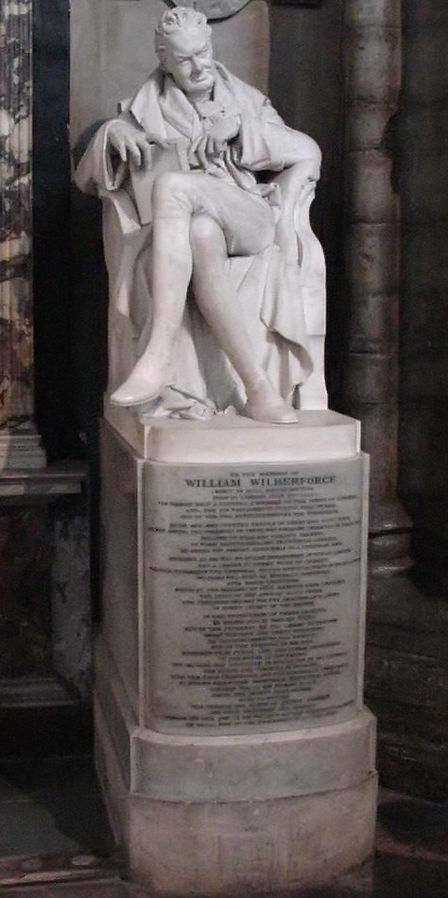
Wilberforce is buried and honoured at Westminster Abbey near his friend and adversary, William Pitt. On the day of his funeral Parliament stopped working as a mark of respect.
His birthplace in Hull, Wilberforce House is now a museum which commemorates the man and his life’s work, including the history of slavery. In 2006 a film, “Amazing Grace was made about his life to commemorate two hundred years since the passing of the Slave Trade Act.
William Wilberforce showed the character of a true Yorkshireman, grit, determination plus an ability to take on the establishment and win.
